The Search for God Page 2.1.5.1
We all live our lives based on certain principles: truth, faith, and belief. We put our faith (trust) in those things we believe (feel or think, hope or know) to be true.

So belief is what we think or feel to be true. When you believe, you develop a level of certainty through numerous proofs and experiences, such as 1+1=2. When you throw a baseball up, your experience has taught you to believe it will come down.
Once the object comes down, then, your hypothesis is confirmed. Belief has some degree of hope. When you fly on an airplane, you believe you will arrive safely, but don’t know you will arrive safely until you are there.
When you get married, you believe (hope) it will be for the rest of your lives, but you don’t know for certain that it will.
How Do We Exhibit Belief?
Belief involves taking all we know and have learned, then trusting that some outcome will occur which is often out of our control. Knowing is where belief and hope repeatedly meet reality or what actually happened. Belief is often forward-looking, an anticipation of what will happen.
Belief doesn’t have to involve an action, simply a hope or theory. Because belief has a continuum from certainty to hope, one person can hold a belief with confidence that it is accurate, and another may believe that same thing to be false.
Let’s take the case of Jesus, Buddha, or Muhammad. Did they live a real life? Some people will say with total certainty one or more of these individuals did not live in the flesh. How about Zeus? Do you believe he lived or lives?
What about that man 2000 years ago that really believed Zeus was a living creature? So 2000 years from now, what if that person who does not believe in Jesus, Buddha, or Muhammad is proven wrong? Is there a consequence? Is there any consequence of not believing in these individuals?
To Believe Or Not?
The issue with a belief is not how certain you are or how much you hope for the belief to be true or not true, but the reality of whether the belief is true. If I doubt that Buddha lived, can you prove to me that he did, so that my disbelief becomes belief?
If you reject Judaism, can I prove to you that it is true or that Moses lived? Are you willing to consider the possibility, or have you shut your mind not to believe already?
What is belief? Belief is hoping or trusting in what we want to be true until we are faced with overwhelming evidence to the contrary.
Or as Merriam-Webster says, belief is “conviction of the truth of some statement or the reality of some being or phenomenon, especially when based on examination of evidence.”
For many years, I believed I would go to heaven. My reasoning; I was a good person. Even in the face of my stealing hood ornaments or lying to my parents, I thought I was still a better person than everyone else. I believed I would go to heaven.
What is belief? Hope or certainty in something we think we know. Belief often is pride and arrogance. What in this world are you 100% sure of?
The following is what I know to be 100% true:
We believe in certain “truths” in this world that we are less than 100% certain of. Why do you think there is so much anxiety and worry? We hope a blood pressure medication will work.
We believe that airplane or car will take us safely to our destination. But is that 100% certain? Uncertainty lies at the heart of every action, each decision, everyday; we worry events will not happen the way we desire them to happen.
The man with a sick child asks, “Will she die?” The husband whose company lost money wonders if he will be fired. Will i have money for the house payment when my car breaks down?
We live in a world of uncertainty. Our belief, our hope, in events that are not 100% certain keeps us striding ahead.
Certainty
Hope – The problem:
Here steps in faith, which Oxford languages define as complete trust or confidence in someone or something. Or we could quote an oft-used religious definition. “Now faith is the assurance of things hoped for, the conviction of things not seen.” – Hebrews 11:1, NASB 1995

Does this mean we believe nothing in the realm of religion? We have to consider that possibility. Our faith, our trust, must be subject to our beliefs. We can have simple hope without evidence, but should we?
I suggest to others as I required for myself, that we consider and evaluate evidence to obtain a level of certainty so that belief and ultimately faith is grounded in something solid.
Faith
Faith comes after belief which is a result of knowing and experience that provides a level of certainty or hope. Do you put faith into that which you do not believe?
No, even if you have no certainty but only hope in an event you believe enough to act. The best example here is a lottery ticket. You believe enough in the hope of winning even though winning is far from a certainty that you buy.
The certainty of belief speaks to the knowledge of the event and hopefully speaks to the belief in our heart for what we want to happen. However, people can be certain in events they have little knowledge.
People have little knowledge of how an airplane works but are certain the plane will arrive safely. In religion, people can be certain of their belief but may have never studied the religious teaching or may even be illiterate.
Prayer seems to function much the same way in today’s religious circles (at least Christian ones). Prayer is supposed to be a two-way communication, but it has become one of a lottery ticket type of mentality.
The belief is, I will pray for this to happen and I will hope this to happen and if I believe enough, if I just have enough faith in the belief of my hope, then it will happen.
What Is Belief?
The faith (trust) we place in the certainty or hope of an event that we either want to happen or think will happen in the future or what we think has happened in the past.
People often confuse what they want to happen with what they think will happen. When we pray, do we think it will happen? The current “teaching” is because you don’t think it will happen, it will not happen.
The book “The Secret” and other New Age movements have taught that thinking makes reality. The problem is that those teachers believe that the universe is some slot machine or giant lottery or impersonal force that gives you what you desire.
Try this one, I believe that I won’t die. Belief is a powerful force when combined with action and energy toward the accomplishment of that belief. However, belief will ultimately succumb to the truth.
It may take a thousand years, and the truth may not win out in our lifetime, but eventually, truth wins.
The ultimate purpose of this universe will be revealed unless the atheist is right and there is nothing after death, and if that happens, you won’t know or care by then. One of the belief systems in this world will be shown to be correct.
Postulate Three: “There is one truth about death and life after death”
No matter what we believe, there is one truth regarding death. Belief will ultimately succumb to the truth. The lottery is a great example – the truth comes when all our hope and belief is eventually settled, when we find out who really won.
The game is played and at the end, the winner is found. Life is a game that has rules, the end is death, which is where our game ends, and we all will get the rewards or losses for playing.
No matter which religious system you believe in and trust, in the end, there is one truth, and we will all be subject to those rules after death.
What Next?
- What is the crucial concept?
- Belief, no matter how certain we are or how much we hope, is subject to truth.
- Why is that significant?
- There is one truth about life after death.
References And Links
John Searle – What is Belief?
Daniel Dennett – What is Belief?
Rebecca Newberger Goldstein – What is Belief?

Leave a Reply